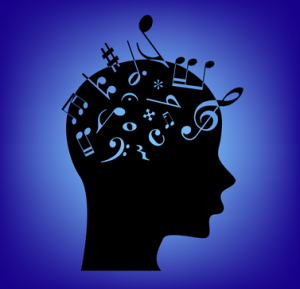 Companies like Shell, IBM, and DuPont use music to create an atmosphere that accelerates learning and optimizes memory. Music is a powerful way to access a joyful, playful state of mind. It is also a powerful way to access a relaxed and meditative state of mind, which is another facet of being playful. We know today the impact of music on our emotional state, concentration, learning ability, and intellectual agility in new situations. Dr. Don Campbell has authored a few books on the subject; one of them is The Mozart Effect, which was greatly inspired by the work of late French ENT doctor Alfred Tomatis. Campbell writes that forty-three of the largest industrial companies in the world play music in their offices. Some of them have recorded up to 33-percent reduction in administrative errors. In times of intense mental concentration, our pulse and blood pressure increase, making it harder to concentrate. To counteract this, baroque music in particular is a very efficient way to induce feelings of relaxation because many compositions are performed at a tempo of 60 beats per minute, with long sections of music at the same tempo, mimicking a slow-paced human heartbeat and inducing a natural state of relaxation and improved learning ability. Recent research shows the music fires up certain parts of our brain responsible for memory, language, movement, and our sense of rhythm. Professor Anne Blood, a researcher in neuropsychology at McGill University in Montreal, proved that different types of music fire up different parts of the brain. It can be very useful to manage stress, anxiety, and attention deficit disorder in the workplace.
Companies like Shell, IBM, and DuPont use music to create an atmosphere that accelerates learning and optimizes memory. Music is a powerful way to access a joyful, playful state of mind. It is also a powerful way to access a relaxed and meditative state of mind, which is another facet of being playful. We know today the impact of music on our emotional state, concentration, learning ability, and intellectual agility in new situations. Dr. Don Campbell has authored a few books on the subject; one of them is The Mozart Effect, which was greatly inspired by the work of late French ENT doctor Alfred Tomatis. Campbell writes that forty-three of the largest industrial companies in the world play music in their offices. Some of them have recorded up to 33-percent reduction in administrative errors. In times of intense mental concentration, our pulse and blood pressure increase, making it harder to concentrate. To counteract this, baroque music in particular is a very efficient way to induce feelings of relaxation because many compositions are performed at a tempo of 60 beats per minute, with long sections of music at the same tempo, mimicking a slow-paced human heartbeat and inducing a natural state of relaxation and improved learning ability. Recent research shows the music fires up certain parts of our brain responsible for memory, language, movement, and our sense of rhythm. Professor Anne Blood, a researcher in neuropsychology at McGill University in Montreal, proved that different types of music fire up different parts of the brain. It can be very useful to manage stress, anxiety, and attention deficit disorder in the workplace.
Excerpted from The Intuitive Compass, Jossey-Bass, 2011.
